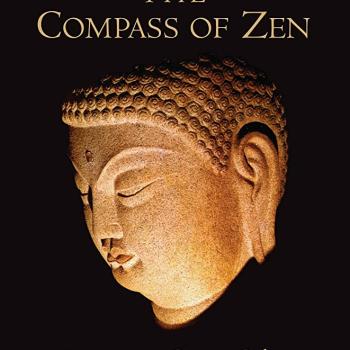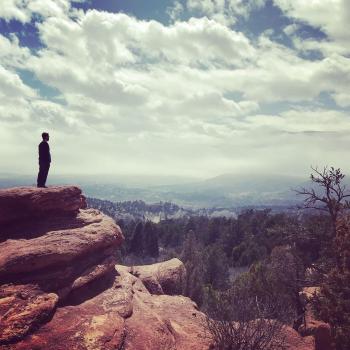Let it go and be spontaneous,
Experience no going or staying.
Accord with your nature, unite with the Way,
Wander at ease, without vexation.
This sounds like a Daoist teaching. It’s important to be natural and spontaneous. Being natural means being who we really are. Engaging the world with a sense of wakefulness instead of delusion.
If we’re being natural we stop trying to control everything all the time. We just let the universe unfold as it is.
Being natural also refers to dwelling in our Buddha nature. It means seeing anything that happens as part of our journey to awakening. It means that there is nothing we are holding onto that we can’t put down if we need to.
Bound by thoughts, you depart from the real;
And sinking into a stupor is as bad.
To be bound by our thoughts means to be influenced or carried away by them all the time. We can accumulate more and more delusion and just sink into a stupor. That is what we don’t want.
It is not good to weary the spirit.
Why alternate between aversion and affection?
If you wish to enter the one vehicle,
Do not be repelled by the sense realm.
This is about grasping again, picking and choosing. So much of “Faith in Mind” takes us back to that main point that’s in the very beginning. It’s not hard to reach Enlightenment if we aren’t grasping or rejecting all the time. We are encouraged to practice without being attached. As soon as we become attached, we start to lose our way.
The one vehicle is the Buddha Way. We aren’t really following the Buddha so much as we are trying to do what he did. A powerful practice is just dwelling where we are, learning how to be in our situation without feeling aversion when things get hard. That’s what “Do not be repelled by the sense realm” means.
This also applies to our meditation practice. The temple I go to sometimes is in an urban area. It’s next door to a fire department. So, not only are there the regular sounds of being in the middle of the city, but also once in a while there is the sound of sirens, as the firefighters rush off to save people. These could be terrible distractions, of course. That’s part of what the text is talking about here. If we are upset by the noises of these firetrucks or whatever else we hear in the distance, then we are being repelled by the sense realm.
With no aversion to the sense realm,
You become one with true enlightenment.
If we aren’t affected by the sense realm, by our environment, then we can dwell in Enlightenment here and now. If we have strong feelings about our surroundings, then we won’t be able to practice very well.
The wise have no motives;
Fools put themselves in bondage.
“The wise have no motives” is really another way of saying what I’ve been saying this whole time. We aren’t practicing to attain anything. We are practicing to practice. That is what it means to have no motives.
I will always remember the Eagles song, “Already Gone.” In it, the singer, Glenn Frey, says, “So oftentimes it happens that we live our lives in chains, and we never even know we have the key.”
I don’t think the Eagles were singing about spiritual practice, I think the song is about a relationship. But, to me, the quote really applies.
It’s our own minds that keep us in bondage, that cause our delusion. We bind ourselves with delusion. If we can just put down those attachments, then we can manifest our true nature.
There’s actually a very famous story about Sengcan about this:
A monk asked the master Sengcan: “Master, show me the way to liberation.”
Sengcan replied: “Who binds you?”
The monk replied: “No one binds me.”
Sengcan said: “Then why do you seek liberation?”
This is considered a koan, a story that’s supposed to help us turn our minds a little. If we think about it really deeply, we might have some insights.
The point is, what if we’re free already? What if we’re looking for something that we already have?












